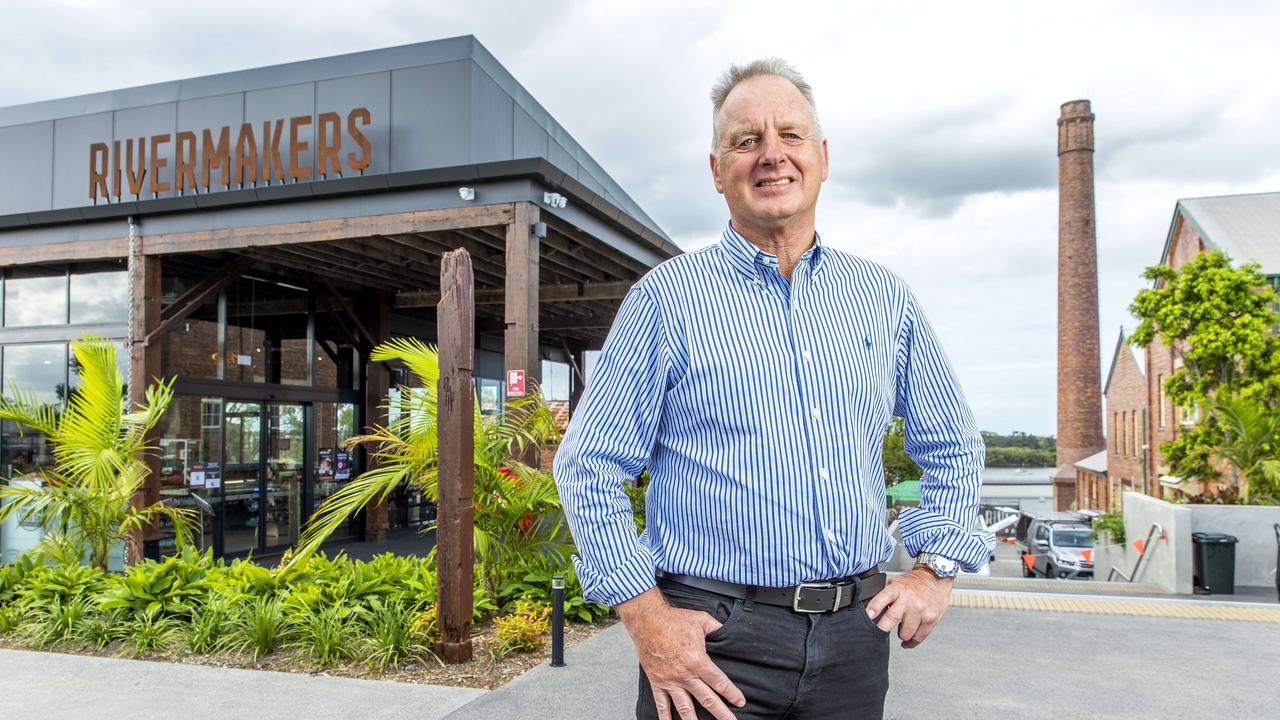Judge grants approval to Australia’s biggest gym complex at Morningside
A long-standing court stoush between two of Australia’s richest men is finally over, with a judge ruling on a controversial mega-gym development in Brisbane’s southeast.

Police & Courts
Don't miss out on the headlines from Police & Courts. Followed categories will be added to My News.
A judge has approved what could be Australia’s biggest gym complex in a Brisbane southside industrial area, after a feud between two of Queensland’s richest men over the development.
Judge Nicole Kefford rejected an appeal by billionaire cattle baron Trevor Lee’s Australian Country Choice, whose town planner lobbied the State Government against the development.
Judge Kefford’s long awaited decision on Friday gives the go-ahead for the 5577 square metre gym complex on multi-millionaire waste recycling mogul Balfour Irvine’s Rivermakers site.
The appeal over approval of the gym complex, on blue-chip inner-city Brisbane property in an industrial zone, followed a falling out between Mr Lee and Mr Irvine, after a 25-year friendship.

In her Planning and Environment Court decision, Judge Nicole Kefford strongly questioned the independence and reliability of evidence of ACC’s town planning expert for the appeal.
The judge said Greg Ovenden had been on an ACC retainer for six years and had asked the the State to call in and redecide council approval of the complex on Morningside’s Rivermakers site.
Part of Mr Ovenden’s “strategy” to protect ACC’s interests was to encourage the Planning Minister to introduce a temporary local planning instrument that might be given weight in the appeal hearing, the judge said.

Deputy Premier and Planning Minister Steven Miles introduced a Temporary Local Planning Instrument, to protect the integrity of the industrial area, less than a month before the appeal hearing, the judge said.
On Friday, seven months after final appeal hearing, Judge Kefford found Rivermakers had proved its case for the gym development on its The Depot site, near ACC’s meatworks.
“Taken in combination, the matters that support approval are compelling,’’ Judge Kefford said.
“They persuade me that the proposed development is meritorious and should be approved, subject to the imposition of conditions.’’
The conditions were that the gym had to cease operating within two years from the date her approval took effect and gym patrons had to be limited to 300 at any one time.
The judge said she did not consider the proposed development’s inconsistency with the TLPI should be given decisive weight.
Judge Kefford said in due course the appeals by ACC and bulk shipping terminal company Wilmar Trading (Australia) would be dismissed and the council’s decision changed to conditional approval.
The companies had claimed the gym, just down the road from ACC’s $200 million Cannon Hill abattoir and processing factory, was inappropriate use of industrial land.
The decision gives the long-awaited go-ahead for the 4472 square metre TotalFusion gym and 9 Degrees’ 805 square metre indoor bouldering gym.
Judge Kefford said the case for refusal was of significant force, as the proposed development was against planning intention to preserve and protect land in the Major Industry Area from encroachment by non-industrial use.
But she said the gym would be in an existing building which could revert to industrial use after two years and it would support local industrial workers and residents.

The introduction of the TLPI on June 29, last year, came three months after Mr Lee, his wife, fashion designer Keri Craig-Lee, other ACC directors and Mr Ovenden met with State bureaucrats.
Mr Ovenden followed up with an email to the State Development and Planning Deputy Director-General, saying a TLPI should be urgently considered.
Judge Kefford said the inconsistency between Mr Ovenden’s professional obligations to his client to resist development on Rivermakers site and the independence expected of an expert court witness, caused her to be circumspect about reliance on his evidence.
She said Mr Ovenden appeared “incensed’’ by what he considered impropriety of Rivermakers’ conduct on its land and had difficulty putting matters to one side and focussing on the real issues.
The judge noted that in his part of a joint expert report, Mr Ovenden had failed to mention that the Planning Minister had decided not to call in the gym development application.
Judge Kefford said she was not prepared to give Mr Ovenden’s evidence about the development the weight that might ordinarily attach to that of an independent town planner.
“I am not confident that it was not asking too much of Mr Ovenden to express objective opinions about the appropriateness of the proposed development,’’ the judge said.
The judge adjourned the appeal until July 8, before making final orders.





